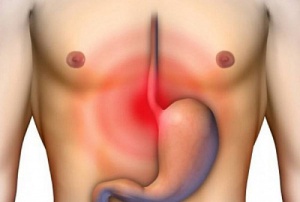Symptoms of Inflammation of the Esophagus


Written and verified by psychologist Valeria Sabater
Sometimes, inflammation of the esophagus isn’t only due to acid reflux. According to experts, when our immune system is weak and our defenses get low, this part of our digestive system can get mildly infected. Here we talk about all the causes of this inflammation and how to fix it.
How do I know if I have inflammation of the esophagus?
Inflammation of the esophagus can be due to two causes: normal esophagitis, or infectious esophagitis. A doctor will have to determine which of the two it is using a test to see if it’s due to a virus, bacteria, or just in response to acid reflux. But usually, all three can result in the same symptoms. Let’s see what they are.
1. Difficulty swallowing

2. Mouth sores
Cold sores or canker sores appear because there’s an infection somewhere in the body. Usually we experience more infections when our defenses are low, i.e. when our immune system isn’t well protected and the white blood cells aren’t functioning correctly. The first symptom of esophagitis is usually a cold or a canker sore.
Read also:
3. Cough

4. Heartburn
It’s important to remember that inflammation of the esophagus can be caused by many things. This includes acid reflux, a virus like oral herpes or cytomegalovirus (a fungal infection), or a serious illness that’s a threat to our health.
This is why in a lot of cases, the most common early symptom we experience is a burning sensation in the stomach. This pain rises up to the throat, but it’s also concentrated in the stomach.
5. A high-grade fever

6. Snoring
Inflammation of the esophagus rises all the way to the throat. And when it’s swollen like that, airflow outward is obstructed, which leads to snoring. Obviously having only this symptom doesn’t imply that something is wrong, but if it’s accompanied by a sore throat and a stomach ache, take it seriously and talk to your doctor.
Read also:
Treatments for esophageal infections

There are tests that will give us answers about the origin of the infection. In the meantime, what can we do at home?
Tea made with aloe vera
Aloe vera is ideal for treating infections and reducing inflammation. The plant is a natural antibacterial agent and helps solve all types of inflammations, both internal and external. Which is why we recommend that you mix gel from the aloe plant in one liter of water and drink it every day, for at least 6 days.
How do you make it? It’s easy – scrape two tablespoons of gel from the plant, being careful not to cut yourself on the spiny leaf. Then add it to a cup of boiling water until mixed well. Afterwards, add three glasses of water to the mixture, and drink it throughout the day.
Make sure it’s always lukewarm in temperature, i.e. neither hot nor cold, so that it doesn’t irritate the stomach or the esophagus.
Ginger tea
Ginger is another natural antibiotic that promotes healing and helps reduce inflammation. Ideally, you should drink two cups a day of a tea made from this root. Just grate a tablespoon of ginger into each cup. And remember, don’t drink these teas at hot temperatures – they’re best when consumed at room temperature.
This text is provided for informational purposes only and does not replace consultation with a professional. If in doubt, consult your specialist.








